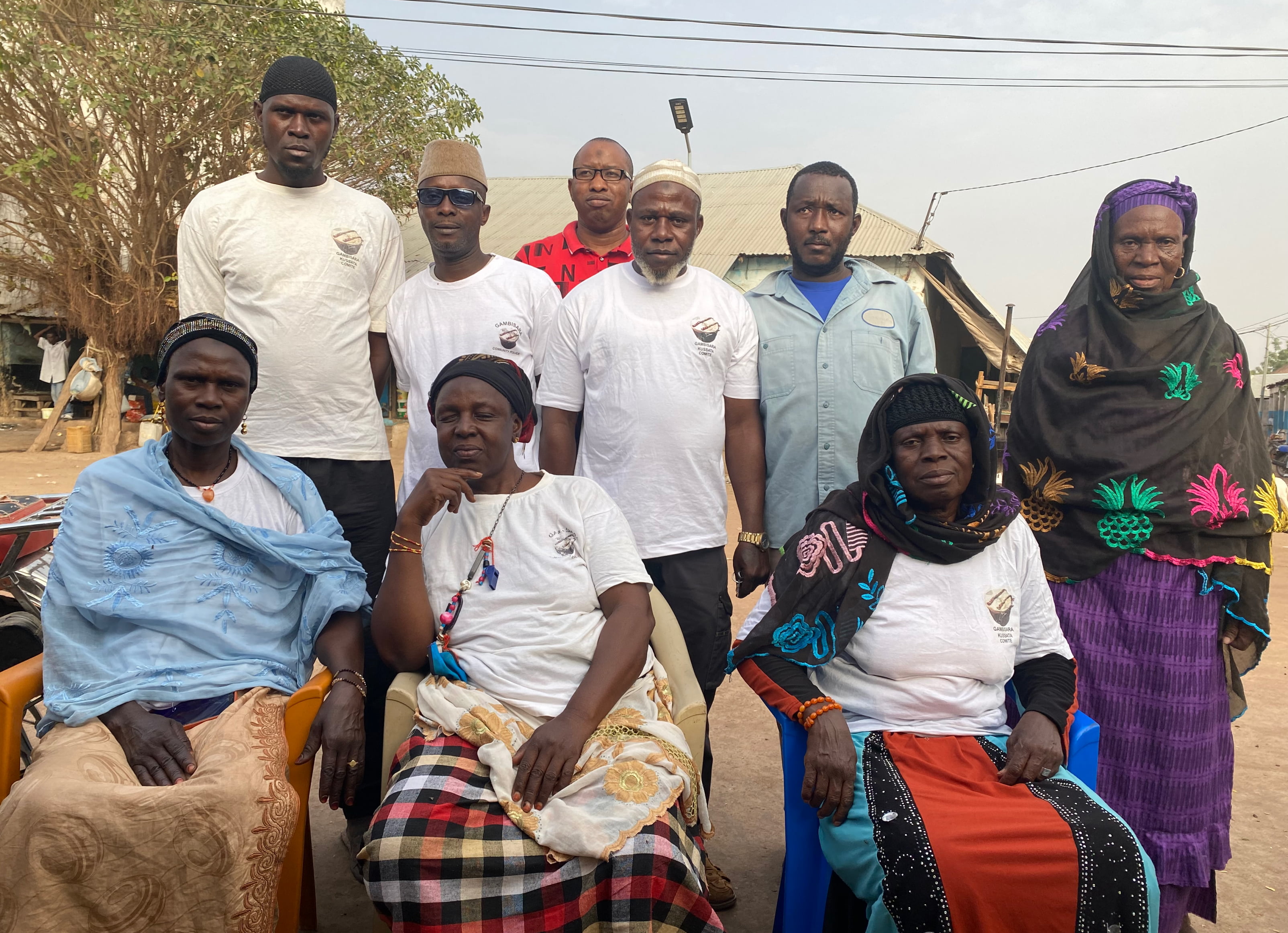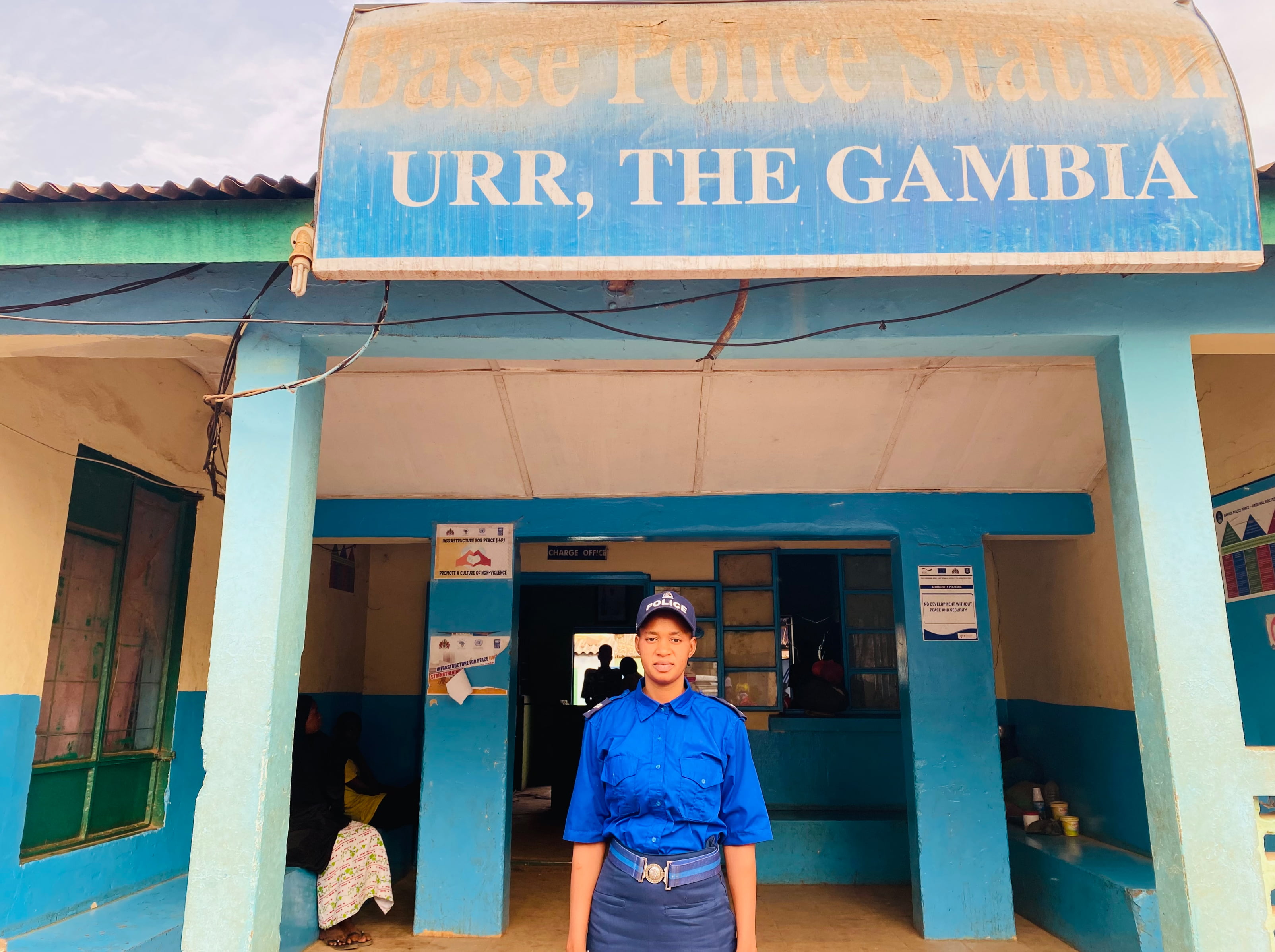The Gambia

Countries & Territories
The Gambia has chalked notable progress on human rights and the rule of law since its return to democratic rule in 2017. However, more efforts are needed to enhance the capacities of national stakeholders and improve the delivery of justice and security services. In 2022, the Government issued a White Paper on the recommendations of the Truth, Reconciliation and Reparations Commission (TRRC), confirming its commitment to implement the recommendations. Most of the recommendations refer to strengthening human rights, justice, security and the rule of law.
Cognizant of the unique transitional justice process in the country, UNDP continues to support the Government’s efforts on legislative reforms, as well as capacity building of the justice system, with an objective to contribute to the establishment of more inclusive and responsive institutions.
According to the 2020-2021 National Perception Survey on Rule of Law, 80 percent of respondents stated they had confidence in the police, and over 80 percent said they were aware of fundamental human rights. These commendable results indicated there was room and momentum to invest more in confidence-building between the police and the population.
Due to limited resources, the Gambia Police Force has struggled to remain present in the communities. Since 2019, UNDP has strategized with the police on effective ways to reintroduce community policing initiatives, using a rights-based, child- and gender-sensitive approach, and increase outreach. Factors such as crime rates, impact on vulnerable groups and distance to the nearest police station were considered when identifying target communities.
UNDP supported the police force in developing a Community Policing Strategy and its implementation plan and facilitated multiple trainings for police officers and community members. In total, 293 police officers (including 89 women) and 161 community leaders, members and youth representatives (including 79 women) benefitted from the training. In addition, 200 community policing volunteers were equipped with necessary skills to continue and contribute to the confidence-building measures and 150 bicycles were procured to enable police officers to reach remote areas and remain mobile.

A joint UNDP and police monitoring visit to Gambisara community where the community policing initiative was introduced
Monitoring, Evaluation & Learning
As a result, in two beneficiary communities, Gambisara and Garawol, the community members noted a reduction in crime rates, which had a positive effect on easing intra-communal tensions. Ali Bongo, a leader of the community policing volunteers in Gambisara said: “Prior to the initiative, not a day went by without an incident of theft, rape or domestic violence within the community. Now, the number of cases of rape, child abuse and petty theft has reduced […].” A joint UNDP and police monitoring visit to these communities confirmed the positive outcome.
UNDP support to the police contributed to the election security management during the 2022 National Assembly elections (both the campaign and the voting process) and the entire electoral cycle. For the first time candidates were allocated an equal number of security personnel during the campaign and after the voting. The following measures introduced by the police contributed to increasing people’s trust in the police capability to ensure security prior and during the elections: election security training, development of security handbooks and manuals, enhanced communication with voters, reinforcement of Public Order Management in all seven regions, incident response mechanisms and recruitment of additional 613 police officers.

A joint UNDP and police monitoring visit to Gambisara community where the community policing initiative was introduced
Innovation
UNDP supported the Gambia Police Force and the judiciary in integrating digital solutions for enhanced service delivery. In particular, the Geographical Information System was developed for the police. This tool provides real-time data on police personnel and assets available in the area – for evidence-based strategic decisions on deployment and resource allocation. In addition, a mobile data collection application was designed to collect data on crime and necessary response. It will be integrated into an existing database – West African Police Information System (WAPIS).
In five court rooms, an automated transcribe system was installed and, according to the information shared by the judges, had a positive impact on expediting judicial proceedings and reducing the case backlog contributing to the improved access to justice.
Leave No One Behind
UNDP provided extensive support to the penitentiary system in The Gambia. In all the three prisons in the country, legal aid desks were established to deliver services for persons deprived of liberty, including women and children in conflict with the law. This activity was implemented in partnership with the National Agency for Legal Aid, the Gambia Bar Association and the Centre for Legal Support based on the Memorandum of Understanding on the provision of free legal aid services.
In 2022, 212 inmates (including seven women) received legal support. As a result, 71 men and six women were released on bail, two men had their charges dropped, six men received their sentence, and four individuals (three men and one woman) were acquitted due to unlawful detention.
In partnership with the Gambia Prison service, UNDP supported the refurbishment of a dedicated female wing and the establishment of a vocational training centre in the Janjanbureh prison. Nineteen inmates and three prison officers improved their skills in tailoring, electrical works, solar and satellite installations. These skills, which they already apply to maintain penitentiary infrastructure, will help the inmates reintegrate into their communities upon release.
Integrated response
In partnership with the National Agency for Legal Aid, the Gambia Bar Association, the Centre for Legal Support, the Alternative Dispute Resolution Secretariat and the Female Lawyer Association, UNDP facilitated the provision of free legal consultations in the communities. Over 240 people benefitted, including 143 women. Most of the cases related to land disputes and were resolved instantly by clarifying the legal provisions to the parties. Some of the cases brought before the legal aid desks concerned child marriage and sexual and gender-based violence. Those were referred to the national institutions, such as the Department of Social Welfare and/or the police, and to the international partners such UNCIEF and UNFPA.
Lessons learned
UNDP’s contribution in The Gambia in 2022 confirmed the need for greater investment in civic education programmes, especially in rural communities, as well as in enhancing the capacity of justice sector actors. Through the analysis of the cases that community members have raised through legal desks or mobile legal clinics, potential conflict drivers within the communities have been identified, which prevents further tensions. Land management, for example, continues to emerge as an important area for further analysis and policy development.

results
- In 2022, crime rates were reduced in two targeted communities as a result of UNDP’s strategic approach to community policing and its effective cooperation with the Gambia Police Force.
- A digital tool developed and piloted in five court rooms contributed to the evidence-based decision making, expedited judicial proceedings and reduced the backlog of cases.
- In partnership with national stakeholders, including civil society, UNDP facilitated the provision of free legal aid services: in prisons and in targeted communities.
- The Gambia Police Force contributed to mitigating risks of electoral violence, providing protection to all candidates and supporting law enforcement at the polling stations during the 2022 National Assembly Elections and, overall, for the 2021-2023 electoral cycle.
The survey is not yet publicly available

